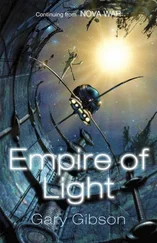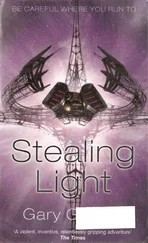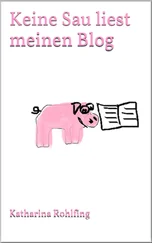It took me almost another decade after graduate school to figure out what writing really is, or at least what it could be for me; and what prompted this second lesson in language was my discovery of certain remaindered books — mostly of fiction, most notably by Barry Hannah, and all of them, I later learned, edited by Gordon Lish — in which virtually every sentence had the force and feel of a climax, in which almost every sentence was a vivid extremity of language, an abruption, a definitive inquietude. These were books written by writers who recognized the sentence as the one true theater of endeavor, as the place where writing comes to a point and attains its ultimacy. As a reader, I finally knew what I wanted to read, and as someone now yearning to become a writer, I knew exactly what I wanted to try to write: narratives of steep verbal topography, narratives in which the sentence is a complete, portable solitude, a minute immediacy of consummated language — the sort of sentence that, even when liberated from its receiving context, impresses itself upon the eye and the ear as a totality, an omnitude, unto itself. I once later tried to define this kind of sentence as “an outcry combining the acoustical elegance of the aphorism with the force and utility of the load-bearing, tractional sentence of more or less conventional narrative.” The writers of such sentences became the writers I read and reread. I favored books that you could open to any page and find in every paragraph sentences that had been worked and reworked until their forms and contours and their organizations of sound had about them an air of having been foreordained — as if this combination of words could not be improved upon and had finished readying itself for infinity.
And as I encountered any such sentence, the question I would ask myself in marvelment was: how did this thing come to be what it now is? This was when I started gazing into sentence after sentence and began to discover that there was nothing arbitrary or unwitting or fluky about the shape any sentence had taken and the sound it was releasing into the world.
I’ll try to explain what it is that such sentences all seem to have in common and how in fact they might well have been written.
The sentence, within its narrow typographical confines, is a lonely place, the loneliest place for a writer, and the temptation for the writer to get out of one sentence as soon as possible and get going on the next sentence is entirely understandable. In fact, the conditions in just about any sentence soon enough become (shall we admit it?) claustrophobic, inhospitable, even hellish. But too often our habitual and hasty breaking away from one sentence to another results in sentences that remain undeveloped parcels of literary real estate, sentences that do not feel fully inhabitated and settled in by language. So many of the sentences we confront in books and magazines look unfinished and provisional, and start to go to pieces as soon as we gawk at and stare into them. They don’t hold up. Their diction is often not just spare and stark but bare and miserly.
There is another way to look at this:
The sentence is the site of your enterprise with words, the locale where language either comes to a head or does not. The sentence is a situation of words in the most literal sense: words must be situated in relation to others to produce an enduring effect on a reader. As you situate the words, you are of course intent on obeying the ordinances of syntax and grammar, unless any willful violation is your purpose — and you are intent as well on achieving in the arrangements of words as much fidelity as is possible to whatever you believe you have wanted to say or describe. A lot of writers — too many of them — unfortunately seem to stop there. They seem content if the resultant sentence is free from obvious faults and is faithful to the lineaments of the thought or feeling or whatnot that was awaiting deathless expression. But some other writers seem to know that it takes more than that for a sentence to cohere and flourish as a work of art. They seem to know that the words inside the sentence must behave as if they were destined to belong together — as if their separation from each other would deprive the parent story or novel, as well as the readerly world, of something life-bearing and essential. These writers recognize that there needs to be an intimacy between the words, a togetherness that has nothing to do with grammar or syntax but instead has to do with the very shapes and sounds, the forms and contours, of the gathered words. This intimacy is what we mean when we say of a piece of writing that it has a felicity — a fitness, an aptness, a rightness about the phrasing. The words in the sentence must bear some physical and sonic resemblance to each other — the way people and their dogs are said to come to resemble each other, the way children take after their parents, the way pairs and groups of friends evolve their own manner of dress and gesture and speech. A pausing, enraptured reader should be able to look deeply into the sentence and discern among the words all of the traits and characteristics they share. The impression to be given is that the words in the sentence have lived with each other for quite some time, decisive time, and have deepened and grown and matured in each other’s company — and that they cannot live without each other.
Here is what I believe seems to happen in such a sentence:
Once the words begin to settle into their circumstance in a sentence and decide to make the most of their predicament, they look around and take notice of their neighbors. They seek out affinities, they adapt to each other, they begin to make adjustments in their appearance to try to blend in with each other better and enhance any resemblance. Pretty soon in the writer’s eyes the words in the sentence are all vibrating and destabilizing themselves: no longer solid and immutable, they start to flutter this way and that in playful receptivity, taking into themselves parts of neighboring words, or shedding parts of themselves into the gutter of the page or screen; and in this process of intimate mutation and transformation, the words swap alphabetary vitals and viscera, tiny bits and dabs of their languagey inner and outer natures; the words intermingle and blend and smear and recompose themselves. They begin to take on a similar typographical physique. The phrasing now feels literally all of a piece. The lonely space of the sentence feels colonized. There’s a sumptuousness, a roundedness, a dimensionality to what has emerged. The sentence feels filled in from end to end; there are no makeshift segments along its length, no pockets of unperforming or underperforming verbal matter. The words of the sentence have in fact formed a united community.
Or, rather, if the words don’t manage to do this all by themselves — because maybe they mostly won’t — you will have to nudge them along in the process. You might come to realize that a single vowel already present in the sentence should be released to run through the consonantal frameworks of certain other prominent words in the sentence, or you might realize that the consonantal infrastructure of one word should be duplicated in another word, but with a different vowel impounded in each structure. You might wonder what would become of a word at one end of a sentence if an affix were thrust upon it from a word at the other end, or what might happen if the syntactical function of a word were shifted from its present part of speech to some other. And as the words reconstitute themselves and metamorphose, your sentence may begin to make a series of departures from what you may have intended to express; the language may start taking on, as they say, a life of its own, a life that contests or trumps the life you had sponsored to live on the page. But it was you who incited these words to shimmer and mutate and reconfigure even further — and what they now are saying may well be much more acute and more crucial than what you had thought you wanted to say.
Читать дальше












